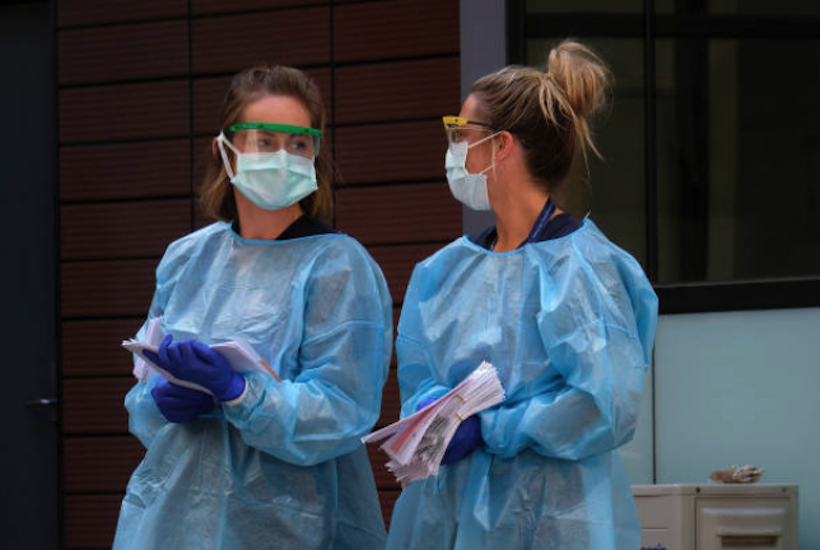As a general rule, it might be fair to say that us doctors should be wary of politics. There are two sides to each argument and the truth generally lies somewhere between.
However, something troubling is the extent to which increasingly we don’t see both sides of an argument — and never has this been more pertinent than the context of COVID-19. I fear that our profession has started to parrot one side of a political argument and that any discussion of different perspectives is being discouraged. In the short term, this is to the detriment of our patients. In the long term, this is to the detriment of society and to ourselves.
As far as generalisations go, it seems reasonable to say that most doctors are in favour of decisive government measures – the “lockdown” – to try and limit the spread of coronavirus. The familiar meme about “us going to work for the public so the public should stay at home for us” has made the rounds for months on end.
Perhaps we should have some circumspection about this, as we are one of very few professions who benefit from this policy. Since coronavirus has started, we have kept our jobs and our good salaries, we go to work as usual and the restrictions don’t greatly affect our daily routine. What is more, with fewer people coming to hospital, our jobs are actually significantly easier in many ways. We should feel uneasy with being so adamant about a policy which benefits us and is hugely straining on most other people.
Indeed, this doesn’t even take into account the fact that there is very limited evidence that lockdowns achieve their intended goal to reduce infectious spread beyond what would be limited by voluntary behaviour. Nor does it address the fact that limiting it to this extent may not be a sensible long–term policy: if there is no vaccine, Australia will have to open its borders eventually and will then be in the same position as the rest of the world, just later in time.
The pros and cons of this debate are something for politicians to decide. However, meanwhile, we should be advocates for our patients and I fear that while we have been supporting the government line so strongly, we have neglected to be the advocates we should.
My city is a good example. At the time of writing, we have had 10 confirmed cases of COVID-19. All of these have recovered. We have had no deaths from this virus. Set against that, I know of people who have committed suicide due to stress of being unemployed or being lonely. On a daily basis I see people presenting to ED with mental health issues related to the lockdown. I know about patients who are not coming to hospital for fear of coronavirus, some of whom have died as a result of this. This is not even taking into account the long–term health effects of missed appointments, cancer screening, as well as the mortality and morbidity burden associated with recessions.
Almost by definition, if nobody has died from coronavirus but people have from the lockdown, the cure has been worse than the disease (although that is a different thing from saying we should have done nothing).
We should bear in mind that each year in Australia, influenza kills between 1000 and 3000 people. So far only 100 people have died from coronavirus. We have taken measures with this outbreak which are wholly disproportionate to anything we have seen before and we are only beginning to see the negative consequences of this now, although much worse is likely yet to come.
I don’t believe it is the job of a medical body to advocate either for a lockdown or against one, however, we should certainly make the case that there are negative consequences to government action and we should be vocal about these – the same as we would if people were dying from inaction. Most concerning though, is the fact that those who express concern are belittled and dismissed. This cannot be a good state of affairs for any profession. If we do not permit the exploration of different opinions, we can hardly call ourselves scientists – or open-minded people.
The author is a hospital doctor. A pseudonym has been used to protect their privacy.
Got something to add? Join the discussion and comment below.
Got something to add? Join the discussion and comment below.
Get 10 issues for just $10
Subscribe to The Spectator Australia today for the next 10 magazine issues, plus full online access, for just $10.


























Comments
Don't miss out
Join the conversation with other Spectator Australia readers. Subscribe to leave a comment.
SUBSCRIBEAlready a subscriber? Log in